- From Faith Current: “The Sacred Ordinary: St. Peter’s Church Hall” - May 1, 2023
- A brief (?) hiatus - April 22, 2023
- Something Happened - March 6, 2023
Friend Stephen Kroninger sent me this list of the Beatles best albums today; not surprisingly, Revolver edged out Sgt. Pepper (with Abbey Road at #2!). This led to some interesting thoughts regarding Sgt Pepper versus Revolver, which I wanted to share.
I’ve written about my love for Pepper many times before (probably most lucidly here), and Nancy has written nicely here. It’s not as though the album needs defenders. Or does it?
For the record (ha), I definitely prefer Pepper; I listen to it more frequently, think it’s more interesting, and feel it is—decisively—a greater artistic achievement. I also think the songs on Revolver are mostly better. But an LP isn’t simply a collection of songs, or doesn’t have to be, and Pepper was really the first album to attempt to harness all aspects of the listener experience—the music, and the cover, and the lyrics, the packaging, even the “story” surrounding the performers—to get something very specific across, to create a specific experience for the listener. Revolver did some of this—the music and the cover are “in tune” with each other (as was Rubber Soul). But Pepper takes it much, much further.
Pepper is routinely slagged because “it’s a concept album with no concept.” This is, frankly, bullshit. When Pepper was released, millions of people across the West immediately got the concept, and what they got was an artistically coherent, incredibly visceral experience that was more or less what the Beatles intended them to get. What more could a concept album possibly do? In fact, I’d argue that narrowly defined concept albums (like, say, Zappa’s Freak Out or Nilsson’s The Point) are not capacious enough to be truly successful in an artistic sense. They certainly aren’t capacious enough to accommodate John, Paul, George and Ringo in full flood; Pepper goes down a bunch of blind alleys because John and Paul were at their apogee in late ’66 and ’67. They were hitting it so hard, they could leave “Strawberry Fields Forever” and “Penny Lane” off the album…and we’re still having this chat.
So what was the “concept” behind Pepper? Was it Paul’s idea of The Beatles as a fictional band? Nah. That was a concept, fully fleshed out in the movie Yellow Submarine, but it was just the circumstantial seed from which Pepper was grown.
To find the concept behind Pepper—which I don’t think the Beatles defined, or could define—let’s start with Langdon Winner’s famous paragraph from 1968: “The closest Western Civilization has come to unity since the Congress of Vienna in 1815 was the week the Sgt. Pepper album was released. At the time I happened to be driving across country on Interstate 80. In each city where I stopped for gas or food—Laramie, Ogallala, Moline, South Bend—the melodies wafted in from some far-off transistor radio or portable hi-fi. It was the most amazing thing I’d ever heard. For a brief while the irreparably fragmented consciousness of the West was unified, at least in the minds of the young.”
Lest you think Pepper was simply a countercultural happening, upon the record’s release The Washington Post called it “a musical infinity” and intoned, “Music may never be the same again.” An ocean away, Kenneth Tynan was calling Pepper “a decisive moment in the history of Western civilization.” I won’t add more; you can Google it.
Revolver, as great as it was, simply didn’t have anything like that kind of impact. In fact, it seems to have been released to a general sense of “ho-hum, another great Beatles record.” (Ray Davies hated it, but with all due respect, fuck him.) Yes, it made a huge impact on Brian Wilson, but that’s basically Don Drysdale admiring Koufax’s fastball. There aren’t even any stories of Mick and Keith hearing acetates of Revolver and throwing up in their mouths. (More’s the pity.)
And for the first 13 years after Pepper‘s release it, not Revolver, was considered to be the Fabs’ masterwork. The two battled throughout the 80s. Now, Revolver is regularly put in the top spot. There are a couple of reasons for this, one maybe you’ve thought of, and one maybe you haven’t.
Ringo and George never rated Pepper highly, because they didn’t have much to do, and were not shy about saying so. But it was John Lennon who regularly slagged psychedelia-era Beatles in general, and Pepper in particular, first in the Rolling Stone interview, and then in the interviews he did in support of Double Fantasy. He did this to downgrade Paul.
Psychedelia as a style of music required a heavy dose of studio magic, and that was Paul and George Martin’s thing, not John’s, and Lennon circa 1970-71 had a positive mania for reducing, and if at all possible removing, the contribution of those two guys in particular. If, say, “Being For the Benefit of Mr. Kite” relied on people other than John to sound awesome, and sprang from a source other than John’s own genius (read: trauma), then it couldn’t be good.
Therefore, Sgt Pepper’s Lonely Hearts Club Band, being Paul’s thing, couldn’t be the Beatles’ height—if it were, the whole story being told to Jann Wenner and sold to the rest of us, would fall to pieces. And in the Double Fantasy interviews, admitting Pepper‘s pre-eminence would call the question that nobody wanted asked except for millions upon millions of Beatles fans: why aren’t you working with Paul McCartney, you dimwit?
After Lennon was shot, fans and critics were extremely loathe to disagree with his memory and his widow. So Pepper‘s hold on the top spot began to loosen. But there’s a second reason that Pepper began falling during the Reagan years, and has been stuck at #2 (or now #3—Pepper-hating ASSHOLES!) ever since.
Upon its release, and certainly since, Pepper represented something a great deal bigger than The Beatles—and in 1967, there wasn’t a lot, culturally speaking, that was bigger than them. Pepper was, as it was intended to be, the most mature, most accessible, most durable and probably most important artistic expression of the utopian visions unleashed by all the psilocybin, mescaline, and LSD ingested in the US and UK since 1955 or so. That was Pepper‘s concept. Unlike Leary’s pronouncements, or Kesey’s Acid Tests, or the moveable feasts happening in the Haight or Notting Hill, Pepper immediately reached well outside the counterculture. You could say that perhaps the graphic art scene centered in San Francisco—the posters made by Rick Griffin and Victor Moscoco—were also a durable expression of this aesthetic, but they weren’t something your grandmother could appreciate. Unlike, say, “When I’m Sixty-Four.”
Pepper, from the moment it dropped, embodied the hopes and dreams of the hippies. And when the scene soured, and Pepper was the only Pepper that had been created (apologies to SMiLE and Jimi Hendrix and Disraeli Gears)—when the great Day-Glo Utopia was not declared, and 1967 was followed God help us by nineteen-sixty-fucking-eight—the reputation of Pepper could not help but suffer. At the very least, it could be seen as a promise not kept; and at most it could be seen as the product of a short-lived and ill-considered cultural misstep—high art perhaps, great art for sure, yet based on a gimmick, a fad.
But psychedelia didn’t come from nowhere, and didn’t really go anywhere, either. Governments cracked down on the substances that were driving the experiences, and those relatively benign chemicals were replaced by other, worse ones, but the people playing Pepper in June 1967 could not unsee what they had seen, or unfeel what they’d felt. The conceptual shift delivered by that concept album couldn’t be reversed.
People tried, for sure they did; the history of the West since Thatcher and Reagan could be summed up as an attempt to put all that cosmic toothpaste back in the tube. We are dealing with the consequences of that self-mutilation now, which is kinda why I’m writing this, too late on a Saturday night spent drinking Guinness with a cider float. In 1987, and since, dissing Pepper in favor of Revolver wasn’t just about judging one collection of songs against another; it was about admitting a mistake. It was a way to say, “All that florid, eye-watering psychedelic nonsense—all that ‘we’re going to remake the world’ stuff—was bullshit, and we were just too young and immature and high to realize that things are as they are, and will always be as they are.” And it was a way to say, “The Beatles at their artistically biggest and most ambitious and most colorful and inventive was also bullshit, because all they were was musicians, and all they made were songs, and that kind of thing doesn’t change the world half as much as, say, the repeal of Sarbanes-Oxley or the Peacekeeper missile or the IMF or the fact that Donald Trump’s parents didn’t love him enough.”
To which I reply: fuck that.
Revolver is a better collection of songs than Pepper; and I love it, too. But Pepper is, was, and will always be, a more distinct artistic experience; distinct in the Beatles’ catalog, and distinct as regards the other LPs of its time; and distinct even today. That counts. Pepper‘s historical prominence—and the calumnies committed against it as a result of that baggage—that also counts.
Pepper isn’t just a better LP than Revolver, it’s one of a handful of pieces of truly great popular art. Fifty-two years on, we can clearly see that Pepper is the primary mass-market artistic expression of a Utopian movement which continues on today; it is as close as your local store that sells incense and crystals. (Maybe that’s not as close for you as it is for me here in Santa Monica, but you get the pic.) That matters, has always mattered, and will always matter.
When people want to explain The Sixties, they play Pepper first—before all the other amazing and wonderful albums that were also created then. First. Before Revolver. Case closed.

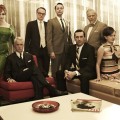
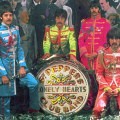
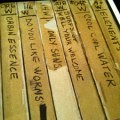


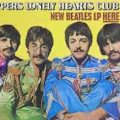
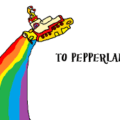
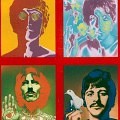
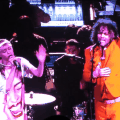

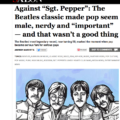
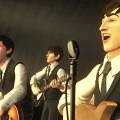
Great article, Michael!
Wow, coming from you that’s a huge compliment. Everybody, Scott does these amazing in depth Sonic explorations of Beatles albums which you can see in theaters (and even stream, right Scott?). They are stupendous.
Pepper is my favorite too Michael. Interestingly Pepper used to be my son’s favorite but now it’s Revolver. We’ve had many debates over this. While I’ve always appreciated Revolver (especially Tomorrow Never Knows) and recognized it for the great album it is, when I want to listen to a middle period Beatles album, I always reach for Pepper or Rubber Soul, but usually Pepper. My reasons are simple. I like the heavier guitar and bass sound of Pepper.
I LOOOOVE Tomorrow Never Knows.
Revolver is the countdown; Pepper is the blast off.
“Revolver is a better collection of songs than Pepper; and I love it, too. But Pepper is, was, and will always be, a more distinct artistic experience.”
Thanks for putting that so beautifully, Michael — you articulate something I’ve felt but not expressed as clearly.
I have two reactions to the whole Revolver vs. Pepper question:
[in a highly sarcastic voice]”Yeah, let’s play Sophie’s Choice with albums when there’s no need to (like cutting the White Album down to one disc). Because if you have two kids, or two towering aesthetic achievements, you have to choose one, amirite?”
[in a more reasonable voice]”People say Revolver is the thing, but I prefer Pepper.”
Totally agree with this, Nancy!
It’s so hard to compare and rank Beatle albums and/or songs. They all are so special and wonderful in their own ways.
I agree, although I like individual songs on Revolver —Pepper is a more important, and even *more* fully realized, piece of art from so many different angles. A few random thoughts:
.
– A lot of Beatles “where did it go wrong” analysis focuses on how John couldn’t handle how successful Pepper was, despite being Paul’s baby—and around here, we like to point out that that only happened because John ceded some ground in 1967 to McCartney, mellowed out by acid (and determined to destroy his ego). What would have happened if John had been more fully in control of his ego, and not tripping so often that it actually changed his personality? What if, like Paul, he’d only taken LSD four times? Paul was cresting in late ’66-early ’67, and he wasn’t going to be denied. Was it necessary for the group to continue that Paul get space to lead Pepper? Revolver shows a schism forming between Paul’s tracks, which are almost all genre experiments reflecting a talent for composition that goes beyond—and in a different direction than—rock and roll, and John’s and George’s, which seem to be showing how rock can soak up the exotic and otherworldly while still using traditional instruments.
.
– It’s crucial to Pepper’s success that it began as an album about childhood, and I suspect that’s where John’s influence would have led further, had he been inclined to lead. The Edwardian Pepper band works because it’s suffused with a slippery-reality version of nostalgia for a different era. John had the easiest and most direct access to childhood of the four, in all its very real complicatedness. But the only place to put Strawberry Fields would’ve been before the title song—an opening act—just like the only place to put Day in the Life was after the show was over.
.
– There’s a fascinating page on Facebook that collects photos of Beatles recording sessions, and after looking at the Pepper ones…John looks *rough* in a lot of them. He looks ill, glazed, and out of focus. I know he only did LSD the one time, during Getting Better, but it cannot have been a comfortable time for him. Paul, meanwhile, looks bouncing with energy and rail-thin… See here: https://www.facebook.com/pg/BeatlesRecording/photos/?tab=album&album_id=1544927315627470&ref=page_internal.
Good points Michael.
Wasn’t Paul doing cocaine at this time? He has admitted he used it for a year or so. This would explain his thinness and excess energy. (Which He always had an abundance of anyway).
@Michael, to reiterate some of what you said: the magic of Pepper comes from precisely where the four guys were personally, and in relation to each other, during those crucial months. How John was home, bored, prowling London on acid surrounded by a shifting retinue of freex, and Paul was Mr. Music Machine; how George had one foot turned towards India, and Ringo just marking time. How they were working with George Martin. How Brian was still alive. And how they were being challenged — would they survive without touring? What could that possibly look like?
.
If I ever write a Beatle screenplay, it would be from August 29, 1966 to August 29, 1967 — Candlestick, to Brian’s funeral. That is the period when the Beatles change from a wonderful little Sixties band — defined by Beatlemania — into THE BEATLES. Something infinitely greater. Something that gives them a scope and depth that simply dwarfs what they had been, as well as contemporaries like The Kinks (great band) and Stones (great band). And how they dragged the rest of us along through that hyperspace leap.
.
Anyway, Pepper couldn’t have had the same, one-of-a-kind alchemy if John had been who he was a year earlier — and to me, the alchemy was gone after “All You Need Is Love.” By the time of MMT, it’s all slightly…overripe. But with Pepper, I *don’t* think it’s a question of absence. I don’t think John’s a vacant zombie during Pepper–the music doesn’t show that. But I do think that the acid created the emotional/psychological space in the band for Paul to grow into a full partner. That process was bumpy — could it have happened without acid? I’m not sure. Paul walked out during Revolver, but Pepper was apparently happy. So much to say that I think had John NOT been traveling the cosmic highways and byways, Pepper wouldn’t have been what it is. Probably more like Revolver…if it happened at all. John was often weirdly limited in his view of what the Beatles could or should be, once they’d made it to “the toppermost.”
.
Re John’s health during Pepper: don’t discount the smoking, hence the suppression of appetite. And yes, Paul was on coke for some portion of this period. LOTS of CONFIDENCE!
“I don’t think John’s a vacant zombie during Pepper–the music doesn’t show that.”
.
I agree. As you note, Pepper is a very fleeting moment that couldn’t really have been prolonged indefinitely. As I mentioned in that Abbey Road post, John’s still doing all the little things in Pepper. But I do think he is somewhere very strange, and sometimes very dark, between November ’66 and August ’67 — the difference is that the old support systems are there: Brian, his friendship with McCartney, Cynthia, etc. All the things that enabled him to be John Beatle.
.
“John was often weirdly limited in his view of what the Beatles could or should be, once they’d made it to “the toppermost.”
.
I don’t think the John-led Beatles would have made it much further than Rubber Soul, honestly. To me, Rubber Soul is John’s Sgt. Pepper: the ultimate long-playing expression of what the Beatles could be, grounded by one of his strongest batches of songs during a year when he was red-hot. For the Beatles to become THE BEATLES, Paul needed to emerge (remember, he was two years younger) into his own. Acid probably prolonged the Beatles, because a less mellow John Lennon would have been likely more resistant to a stronger and even more confident Paul McCartney. And Revolver is this truly unique Pax Beatannica where John and Paul’s prolificness, confidence, vision, and desire to lead are just about equal, and somehow, just somehow, find a balance. When they tried that again in 1968, disaster ensued.
.
Also agree about MMT being “overripe.” MMT is also interesting because it’s the closest the Beatles come to repeating themselves pre-1969. The opening “theme song” is the same, but not as good as Pepper. There’s a music hall number from Paul, less witty than When I’m 64. There’s a freaky Indian number from George, less inventive than Within You Without You. There’s a terrifying LSD song from John. All this music is good, and MMT the album is one of my favorites because it’s the last album made by a group of friends, but it’s clear that heading into 1968, they faced a dilemma–they had apparently gone as far as they could, under current conditions (post-Epstein, etc.) with that brand of psychedelia, yet for the moment, neither Paul nor John had ideas for where to go next. I think George Martin was right that more symphonic thinking would have been the next logical step, and Paul clearly was receptive to that. I think under different conditions (had Brian lived, for example), John might have been receptive to it, too.
One other note, because I like to point out the generally untold role of drugs as “more than just things they did”: Just about all of the Beatles’ musical changes to date had been influenced by choice of substances interacting with innate talent (i.e., speed: frenetic, excited, early Beatles music; pot = acoustic, less frenetic Beatles foe Sale through Rubber Soul-style records; LSD = Revolver, Pepper, etc.). It was unfortunate that the substances being introduced to the counterculture in 1968 were a terrible mix with the joyous curiosity that the Beatles did best.
Thanks for the comment, @Michael. Yours always get me going.
.
Pepper is a very fleeting moment that couldn’t really have been prolonged indefinitely
.
Yes, to me it’s like Dylan’s year of miracles which began with Bringing It All Back Home and ended with Blonde on Blonde (or, really, his motorcycle crash — which might not have happened at all? Different post). This is why I always bring in Pepper‘s historical milieu, because it was the history that was happening around John, Paul, George and Ringo–the attitudes of the people they were around–which helped them make Pepper, and made Pepper so great. Just like those same things flavored White a year later. And some of my love for Pepper and distaste for White is this flavoring, caused by things wholly apart from the band. You can’t “hear” Pepper properly without knowing about Swinging London, Carnaby Street, and the amount of positive energy that was flowing in ’66 and ’67, and you can’t “hear” White properly without knowing about Tet, MLK, RFK, May ’68, the Democratic Convention…Why didn’t Manson gravitate towards Pepper? Because Pepper is, even with “A Day In the Life,” a fundamentally optimistic album, whereas White is to my ear fundamentally pessimistic.
.
It was unfortunate that the substances being introduced to the counterculture in 1968 were a terrible mix with the joyous curiosity that the Beatles did best.
.
Indeed. But inevitable. As George discovered on his trip to San Francisco, the substances you’re talking about had hit the Haight as early as mid-67, as LSD turned to STP, and heroin replaced pot. I’ve always felt that this progression wasn’t exactly natural — to believe otherwise is to subscribe to the “gateway” theory, and I don’t. I suspect that sources of the earlier, more benign substances were dried up on purpose, and new ones were introduced. Was this part of Operation CHAOS? Impossible to say, but it did achieve their aims, and we know that the military intelligence nexus was developing all sorts of new chemicals (and starting to bring heroin over from Southeast Asia).
Great post Micheal.
To me, the more logical comparison would be Rubber Soul and Revolver. George Harrison in Anthology, said that he thought there wasn’t much difference between the two. Personally, I have always chosen Rubber Soul as my favorite.
I love almost every song, and there’s just something “soulful” about it.
Hola, soy nueva por aquí, debo decirle al administrador y colaboradores, que encuentro muy ilustrativo este blog. ¡Buen trabajo!
.
About this post: Make rankings – especially those about Beatles music – will never be the wisest thing to do, they always trigger controversies and debates (maybe that’s the idea?) that always point to a some kind of “bias”, whether consciously or not by the author, because regardless of his objectivity, the assessment he gives to the weighted work will always be influenced by his own taste, his mood, his points of view and even his beliefs.
.
Having said that, I can say that I have always preferred “Revolver” to “Pepper”, and it is precisely because I like its songs more, they suit my mood. However, I have never believed that it has greater musical or historical value than “Pepper”, and although I’m not as eloquent as MG explaining my own reasons (the language barrier does not allow me ) I must say, that when I hear “Pepper ” I can perceive its musical greatness, its artistic superiority, its surreal atmosphere, how well built it is, and the effort dedicated to its recording, more than in any other album.
Plot Twist: My favorite album is “Abbey Road”, it reaches my soul and has the power to ignite my inner flame. Musically: It is the most contemporary album recorded 50 years ago.
@Alejandra: Very well said.
.
Strangely, for me it is the very timelessness of abbey Road that makes me…trust it less? To me it feels closer to something like Dark Side of the Moon or ELO’s Out of the Blue than, well, even White. Maybe this is my version of Michael Bleicher’s recent post.
.
While I love some of the songs on Abbey Road, and the guitar duel is probably one of my favorite pieces of Beatle music, it’s not a place I like to visit, like Revolver or Pepper or MMT or AHDN.
Yup, this is what I was trying to say about Abbey Road, too. More than any other album, it’s held together by craft–four (okay, often three) individuals plus their producer, doing what they’ve learned how to do very, very well, to make a sterling LP. Until you get to the medley, there’s less sense of discovery than most other Beatles LPs. It’s doing what they know how to do, very well. Even on White, there’s more a sense of “we’ve never done this before, here goes…”, to my ears. Which is great for what it is, on AR. That supreme confidence, that professionalism, make it sparkle. But I personally prefer the rawness, even though that’s a weird word to use for the hyper-produced Beatles, of the prior albums.
More than that, the vibe on AR is…adult, rather than ageless. The Beatles aren’t friends, but they’re also not even actively engaging–trying to connect–with each other the way they were on White (and failing to do successfully). I get the vibe on Abbey Road that they’d figured out, generally, that the only way to make this record in a reasonable amount of time was to keep things friendly, professional, and surface level as much as possible. I couldn’t explain how, but I got that vibe from the music itself even before I learned anything about the group’s history or the recording sessions. With Abbey Road, it’s almost like a couple going into a dinner party all smiles after a big fight in the car on the way over, or a family holding it together for Christmas dinner.
For me, the generation gap between all of us who are admirers of The Beatles, plays an important role that influences when assessing which is the best album. I think the new generations are better related to Abbey Road because it sounds more of this era compared to the other Beatles albums. I know many people who began their journey with AR and until they assimilated all the background and historical contexts of The Beatles music, began to connect with their previous works and it was at that moment that they finally could “almost” affirm: “This is my album “.
.
Before any other record, the first one I heard from the band was the “Beatles at the BBC” compilation of early songs… and I loved it, chronologically it was the best starting point to know their music and I thank the luck that happened that way because that allowed my appreciation for their art to grow along with their own artistic development.
.
So, that there are many people who value “Revolver” (or other) above “Pepper” does not mean that it is their definitive choice, perhaps they are simply still accumulating baggage.
.
¡Hasta la vista!
Another thought-provoking post Michael. I’ll address the substance of it in another comment; what follows is just personal taste.
.
I’ve always vastly preferred Revolver to Sgt. Pepper. The former’s been my favourite Beatles album more or less from the beginning, while there are plenty of albums I get more of a kick out of than Pepper: Abbey, White, Rubber Soul, HDN…hell, if I’m in a suitably rootsy mood I get more out of Let It Be.
.
There’s a delicious iciness to Revolver that blew my mind when I first heard it at 12 or so. I remember just being mesmerised by all the choppy guitar riffs, the trippy backwards lines, the drones and spaced-out harmonies. John and George are churning out these sharp rockers that drip acid in every sense of the word, while Paul of all people contributes the bleakest song-novellas in the catalogue: ‘buried along with her name’, ‘in her eyes you see nothing’. Everything sounds so crisp and dry, not a note out of place.
.
I enjoy a range of sentimental and feelgood music, but as the years have gone on I’ve realised that I have a soft spot for music that combines emotion with a coldness and distance that evoke distant planets. It’s there in ‘waiting for that sleepy feeling’ followed by that first-of-all-time backwards solo; the unearthly way John sings ‘I know what it is to be saaaaad, and you’re making me feel like I’ve never born’; ‘well, well, well, he’ll make you…’ over that psychedelic organ; the entirety of “Tomorrow Never Knows”. As I got older and explored more music I heard the same thing in “Because”, “Eight Miles High”, “Absolutely Sweet Marie”, “See Me Feel Me”, “Wuthering Heights”, “The Great Curve”, “I Feel Love”. The surreality of “Oh! You Pretty Things” and the disjointedness of Low. The impossibly gritty funk-pop of Innervisions. James Murphy’s indie-robot voice intoning ‘Us and them o-ver and o-ver again’ and ‘One touch is ne-ver e-nough’. Alien music, beamed from unknowable parts of the imagination.
.
With a couple of exceptions – “Day in the Life”, obviously, the irresistible joie de vivre of “Rita” – Pepper doesn’t have much of an emotional effect on me at all. I’m impressed but not moved, seduced or thrown off balance – it’s great in the way The Wizard of Oz is great, not Citizen Kane. When I’m listening to it I miss Abbey Road’s ethereal harmonies, White’s eeriness, With the Beatles’ rawness, Rubber Soul’s sheer beauty. And Revolver’s alien voices from distant worlds.
[…] the album I’m sworn to defend. If you haven’t read Mike’s excellent piece already please do so now – I’ll […]
I was pointed to this article by the later discussion, and I really appreciate this as a picture of Sgt. Pepper being put into context. I think it did define a mood and a place and a time and its importance can’t be separated from that. I find it telling that the Beatles albums in my mom’s collection were “Meet the Beatles,” “Sgt. Pepper” and “Abbey Road.” She was a fan but a casual fan and really didn’t have very many rock albums at all, but she lived through those albums as they were coming out and those stood out to her. The introduction of the Beatles (to the US, anyway), the Summer of Love album, and the swan song.
.
I really couldn’t pick a favorite. They’re all good for me at different times and for different moods, from “Please Please Me,” which is a fantastic album where John’s voice was so amazing while he had the flu that it wouldn’t be the same if he were well, to “Abbey Road,” which yes, sounds incredibly contemporary. Though from reading around, it seems like choosing a favorite Beatles album in many Beatles discussion spaces, any more, defines your “side” in some argument. From what I can tell, in general terms only, Revolver is the hipster choice, Rubber Soul is for the aging beatniks, Sgt Pepper is for the Paul fans and loving The White Album proclaims you as best John fan.
.
I always find it surprising that WA is so important to John fans, and can only think it had to do with John’s own later interviews slagging Pepper and telling everyone that WA was real, underproduced rock-n-roll where he was getting his own back or whatever. To me, he sounds so incredibly miserable throughout.
I’d be interested to read a paean to WA from someone without a specific John agenda; I mean, I do love “Dear Prudence” and “Happiness is a Warm Gun” and I suppose there are people who really, truly like “I’m So Tired” and “Sexy Sadie” and “Yer Blues,” like maybe that song has some significance I’m not getting, because to me it sounds like laziness, a random generic song you’d hear in any blues bar late on a Saturday night. To me the Paul songs on that album are the most successful, because they’re all so different and they’re each excellent examples of their genres — in some cases, introductions to some genres?
.
But in the end, who can beat the fun of hearing a fake band in the “Sgt. Pepper” opening, the pure sweetness of “With a Little Help from my Friends” or the gorgeous angst of “Day In The Life?” Sgt. Pepper is listenable from beginning to end, the songs flow naturally, and I can only imagine what it might have been like in its day, after hearing all the stories of it playing from every store and open window in the summer of 1967.
If I may be allowed to post a second entry in one day…….someone above wanted a defense of the greatness of the white album from a John angle. I would like to do that, as I was a John fan then. When white album released, John was not in the press dissing Beatles songs or albums for one thing. At the time white album was expensive but contained additional posters and pics. It was seen as. The end of psychedelic era and very indicative of year of its release. It was a sprawling wonder then of Beatles great genre ventures if not virtuosity. Criticizing the white album or any song from it in 68 was unthinkable….kids had the pics from it taped in their lockers. Despite the later weird genres and John dissed granny music, the white album was “heavy “ to use late sixties term. No one dreamed of dismissing do it in the road, a great free love declaration or to censor John’s open drug lyrics. When I retired and got back on internet Beatles, I was surprised to find John and his current fans think his stuff stronger than Paul’s because my memory of it and friends I had who bought it thought Paul’s songs way heavier and more rocking than John’s. It was seen as great Beatles experimentation and the boundary pushing hey Jude/revolution heavy version that came out around white album indeed showed Beatles remained the kings though much later critics reassessed the white album. As I was 11, the white album is probably the first Beatles album I bought and I stress it was not a cheap one in those days. I was even amazed at rev 9 and audacity of putting such on an album. My review if not so much an assessment of its greatness but how it was indeed a product of its time as were all Beatles and many solo albums. The white album sought answers by re evaluating musical history as the well of rock and even folk messages were running dry …because in 68, we had two major political assassinations, nam was really heated up, folks were rioting and race relations were very tense. Someone noted on this blog Paul was no longer a cultural force In the seventies. None of the solo Beatles were though John and George attempted to be with their political and religious stances. The seventies were way past making a solo Beatle a cultural force. By the seventies, entertainers were more fad leaders. The sixties ideals have ended later with Woodstock but it really ended with the breakup of the Beatles…thus the seventies yearning to reunite the Beatles. For decades, my favorite solo Beatle changed a few times but my favorite Beatle album remained the white album as it was distinguishable Beatles attempts in genre ventures when they didn’t re interpret those genres.
Yes, I really truly like “I’m So Tired” and “Sexy Sadie” and “Yer Blues” (although the last one had to grow on me) and so do friends I’ve introduced the White Album to who weren’t familiar with the Beatles. I converted many a friend who were into modern music to the Beatles using the White Album. You see generic laziness in “Yer Blues” but not in Paul’s ’20s style pastiche of “Honey Pie”. Okay. My favorite Paul songs are ones that are done is his own style, sung in his own voice and not affectation.
Paul’s excursions into vaudeville/genre need to be put into the larger context of Edwardiana/Victoriana being repurposed by the hippies. Allying the trappings of the British Empire (often the military trappings) with psychedelia, free love, etc was a deeply subversive act. And it was profoundly English — in America, you see some Western/Deco elements, but it’s not the same “looking back at Empire from the decadent present.” “Honey Pie” isn’t simply a genre exercise in 20s songwriting, any more than the Bonzo Dog Doo Dah Band was.
.
Compare that with “Yer Blues,” which is a self-conscious attempt to borrow authenticity from the American blues tradition by a guy who never previously had any interest in the blues. Lennon’s obvious emotion and uncanny ability to create intimacy saves the song (which I like), but of the two, it’s the less authentic.
P, thank you very much — Actually, that generational context helps a lot in opening my mind a little. I respect the WA as a work, but the songs that work best for me, and that I personally think hold up best, are mostly by Paul on that one.
.
I first got it on CD in 2009 with the reissue but found then that I skipped too many songs to make it worthwhile. Lately that’s changed, but I was just curious to see where the impression came from that I seem to be getting from the internet (I only got back into Beatles and reading Beatles fandom at all last year) that the WA was a particularly good John album, when he used to sing about his unhappiness so much more melodically. In my opinion! I mean, I love Beatles For Sale, even, and the John-focused Lennon/McCartney songs on there, for me, are worth the price of admission. 🙂
.
(Speaking of, recently in a CVS I heard “Maybe I’m Amazed” as Muzak, which is not surprising, but two songs later was a Muzak version of “I Don’t Want to Spoil the Party.” That gave me a laugh.)
I remember hearing “I’ll Be Back”, one of my favorite early John songs, in Muzak.
.
Michael, “Yer Blues” doesn’t borrow from the American blues tradition. It was actually a parody of British imitators of the blues, and pokes fun at the British Blues boom of ’68.
I can’t picture “Maybe I’m Amazed” in Muzak for some reason. “Another Day” and “Long And Winding Road” definitely.
.
About the WA, I sense a bit of resentment from Paul fans when people describe it as John dominated despite noting that they don’t like the album. BTW, in addition to the “miserable” songs mentioned above, there is “Julia”, “Me and My Monkey” (have you heard anything like it; Fats Domino did a cover of it as only he can for that one), “Good Night” (many covers on Youtube, although it’s perfect for Ringo) and “Rev. 9”. Paul’s most memorable tracks on the album are “Blackbird”, “Helter Skelter” and… a bunch of sleepy ballads and Jim Mac Band inspired songs.
Paul fans will just have to accept that it is something of a John tour de force, like John fans have to continually hear how Sgt. Pepper is a Paul album, despite the fact that the strongest songs were written by John, mostly inspired by him or collaborations. It was Paul’s concept, I’ll grant you that. And I seem to remember hearing that Paul was mostly responsible for the sequencing of the WA, which is brilliant (“Back in the USSR”, run of the mill Beach Boy-inspired rocker in its own right, but great as the opener), “I Will” incongruously following “Why Don’t We Do It in the Road”, almost as jarring as “Good Night” following “Rev 9”, etc.
Michelle, I think the tendency of some Beatles fans to declare particular albums as “John” or “Paul” albums is simply inaccurate. I think it’s inaccurate even when it comes to many songs. “Dear Prudence” has an excellent McCartney bassline. “She’s Leaving Home” has the genius Lennon background vocal lines (“What did we do that was wrong? We didn’t know it was wrong,” etc.). Even “Ob-la-di, Ob-la-da” has that banging Lennon piano intro.
.
And that’s not even to get into factoring George’s and Ringo’s contributions into the mix.
.
This whole “vs” tendency seems to me to have originated after the breakup. And I think it obscures the thing that made the Beatles great, which was their ability to bring out the best in each others’ work — and not focus on who contributed what. (As I say, that focus seems to have come later, and to have been very unhealthy.)
What does “John-focused Lennon/McCartney songs” mean? You mean John-penned songs? “No Reply” and “I’m a Loser” were, in fact, written by John.
“I’d be interested to read a paean to WA from someone without a specific John agenda.”
Paul McCartney loves the album.
Many artists, from Dave Grohl to Red Hot Chili Peppers to Sonic Youth, love the White Album.
Their agenda?
@Nancy, I do agree with you. All four members have their fingerprints on everything the Beatles ever released. My personal favorite of George’s on the WA is “Long Long Long” – so underrated although I wish his voice wasn’t buried in the mix. The snark of Kristen’s post crept up on me, because my initial reaction was to bend over backwards letting her have her opinion. I mean, people like the WA because John slagged Pepper (not really true) in some interview? He has that much power over people?
Agreed – all four Beatles have their fingerprints on everything.
.
Honestly, the picking of songs and albums apart to figure out who did what, in order to claim a particular song or album for a specific Beatle, reminds me of the kind of post-breakup analysis some of us did in our 20s.
.
I vividly recall a friend whose girlfriend broke up with him, and who printed out all their email correspondence (this was before the days of texts, obvs.) in order to go through it line by line with different friends. I felt for him, but wow was that process exhausting and unproductive. He kept at it for a few months, and rather than helping him figure out what had happened and move on, it mired him further and further in arguments and counterarguments about the past.
Well, honestly, I’m a John fan and a Paul fan. And a Ringo fan. I just PERSONALLY don’t find the John-driven songs on the WA to be particularly good if I was to compare them to other John-driven songs that I like, or the Paul-driven songs on the same album. I added the Lennon-McCartney to remind myself that they are actually Lennon-McCartney songs and Beatles songs, and not just John songs or Paul songs. 🙂
.
I hope I’ve made it clear that this is an opinion of mine. I thought I had succeeded with that. I actually don’t hate the White Album. I really like a lot of the songs on there, and the only George song I really, truly love — While My Guitar Gently Weeps — is on there. It just contains my least favorite Beatle John works.
Though Dear Prudence, and the yearning guitar-picking, and the bassline, is such a great song. It’s among my top ten for sure.
In late sixties there were no so called serious rock mags, with exception of brit established melody maker, as they were fledgling or arose in early seventies However, there was a rise of extraordinary brit blues musicians, Peter Greek Hendrix went to England and became part f this, cream with Clapton. Sixties brit groups had always borrowed from American music as who and stones were blues based groups, so folks think blues had more cred that other American style music, much later dismissed as “pastiche.” I remember a little later when I finally got to see John play and sing yer blues in with rock n roll circus with stones and found it interesting that Beatles version surpassed stones, yet Keith overall far better blues guitarist. It’s an irony that I don’t remember the various white album styles being dismissed….it was much later when critics then fans even began using dismissal term as “pastiche.”
A very big reason I find, at least online, for John fans clinging to idea that John “owned” the white album is that, by their own admission m he contributed less to abbey road though I think because song was a great beauty but oddly modern kids don’t like it and John sings incomplete and less on let it be, but I find across the universe to be his most beautiful late Beatles songs. His lyrics became increasingly fractured, as in come together, though they worked in the song. As has been discussed in this forum, this was due to drug use. I found Mother Nature’s son, blackbird as authentic as I’m so tired and sexy Sadie. Because 1968 Beatles were already seen as counter cultural, they did not have to prove how rebellious they were so a nursery rhyme like piggies, two lullabies like cry baby, cry and goodnight could be included along with twenties style “honey pie.” Hamburg Beatles put “till there was you” broadway show tune into their act because they even then put everything in out of necessity as played so many acts. Reading online, I’m very glad that experienced these albums more in real time before other genres and narratives other than first person were dismissed later by critics and contemporaries as…”pastiche.”
Later Beatles were kings of pastiche, but earlier Beatles blended them into their own styles while later Beatles did their versions of them, a bold move then which only Beatles could do better. It’s indicative that stones did a lame, failed imitation of pepper, before coming back strongly in their own powerful style. It’s a matter is choice as to which narrative sounds more genuine but first person is powerful but restrictive and minimalistic, as even early Beatles realized. Solo John took first person narrative minimalism to such an extreme, that I read online where many younger folks regard it as a whinefest music as it is much more common today so doesn’t hold up very well. Thus, George’s and John’s music seems to have held up better and interested younger folks and the prefer the optimism and happiness found in their lyrics.
I definitely, do not have a specific John agenda in my earlier review/memories f the white album though I was a John fan then, as I was blown away that George had his till then greatest song on it, weeps and that Paul had by far the heaviest songs on it. My memories of it and those of my friars from the time as were only fledgling rock mags then. The later abbey road was such a finely produced masterpiece to most that it knocked the white album and the earlier pepper off the throne but. Find that the white album remained a musician favorite because of all the musical styles it explored. The public, however, loved and accepted abbey road though as had then state of the art recording sound.
Please excuse my errors above. I wish I could edit remarks in comments as can’t always see errors when reading as print so small on my iPad. I was a George fan by time of white album, an early John fan, but 67 forward Paul songs so strong that increasingly became a Paul fan. By time of abbey road I was so blown away by vocals of a song now dismissed as “pastiche ,” oh darling, that I became a Paul fan and he was so strong on let it be. I’m so glad to have gotten an unbiased impression of power of these songs and albums before later critics and herd mentality fans derided them and used a dismissive term for them, like “pastiche” because the white album was the Beatles great, if disjointed pastiche album.
I never heard “Oh Darling” being dismissed or described as pastiche. It’s one of Paul’s best songs on Abbey Road, along with Golden Slumbers. John’s contributions are just as good, as were George’s. “I Want You (She’s So Heavy),” “Because”, “Here Comes the Sun and “Something”… all fantastic IMO.
Lennon and McCartney themselves decided it was a good idea to go through each song and describe who wrote what, like a divorced couple would, and it’s a shame. They brought this on. I remember innocent days of first becoming a Beatles fan, and knowing instictively that if John sang lead, it was mostly his song, and if Paul sang lead he was the main writer. And every song blew me away, on first hearing. Didn’t matter who wrote what.
“Solo John took first person narrative minimalism to such an extreme, that I read online where many younger folks regard it as a whinefest music as it is much more common today so doesn’t hold up very well.”
Wait, what? This makes no sense. If it’s common today, his stuff holds up well. You’re saying he was ahead of his time.
I simply read online on music and record forms that Paul sing and others he did with Beatles are dismissed as pastiche. I read an interesting review of white album at time, in Newsweek, that bestowed lavish praise on George white album contributions, and reviewer over analyzed savory truffle as didn’t know George later said song inspired by Clapton’s box of expensive chocolates. Anyway, I saw oh! Darling as gospel tradition but folks repeatedly cite it as fifties du wop. He does a killer vocal on it and it’s and long and winding road, another now dissed song as Schmaltz song, are some of his very few first person narrative lyrics.
I do want to say as a fan at the time, I am very grateful beatles did abbey road, a benefitting last album for them which had then new tastefully incorporated moog songs, Maxwell, octopus, because, she’s so heavy, here comes the sun and used then state of the art recording equipment. Without abbey road album, beatles would have ended with the fractured white album, in America with the collection of reissued b sides of singles on hey Jude/Beatles again album and the dark decay of let it be, released last but abbey was recorded last. Someone humorously noted online who is around my age that in let it be movie, beatles looked like an amateur group who couldn’t even jam together in an age of other guitar master groups and guitar heroes and that Beatles looked like mortally wounded, decayed giants in let it be movie, stumbling off the stage by of the late sixties. There was much truth in this, so abbey road really saved the late Beatles legacy and rep then and now. Thus, I thank God for abbey road and it has remained their most popular album and has continued to chart for years even before more recent reissue.
I was saying what a younger person or several of them said from my reading around online about John solo music being a whinefest. I think that younger folks put it down for that because there’s so much narcissistic,self indulgent music today music today, at least that’s what they say. These are folks are generation or so younger than me who don’t remember solo Beatles in seventies or were’t born yet. Thus, they did not have boomer prejudices. Yes, john narcissistic music was was ahead of its time, like Paul’s rural homespun sounding albums foresaw indie style today which happens to be back in style now. Younger folks seemed to like George’s spiritual emphasis and Paul’s mainly upbeat music and lyrics and various musical styles and seemed to be turned off by John’s downbeat music in especially early solo as say it depresses them. I myself was a Young teenager and played his early solo down to grooves but as got a little older didn’t want to hear it again and preferred his middle solo walls and bridges and double fantasy though those are more MOR. I i have noticed these things and styles or movements go in waves. In fifties early sixties the angst writers,and minimalists theater and artists were in vogue, actually when John was in art school and in early sixties. I remember reading about the kitchen theater style being big in England and many of the movements were an entire life style and not just a look or a fad. Astrid is an interesting study in this. tThe solo Beatles from the very beginning took completely different creative paths one not being intrinsically worse than the other but some paths allowed more expansive creativity.
Speaking of “Honey Pie”, I heard on the Beatles channel today that John plays the jazzy guitar bit in the song. I’ll be damned. I love when I learn something new about the Beatles. The Beatles Bible mentions it too, but that’s one I never looked up.
@Michelle, thanks for the trivia about John’s jazzy guitar playing. I love when he lets loose on guitar. Honey Pie is exceptional Tin Pan Alley twenties style and, of course, Wings version of the Tin Pan Alley twenties and thirties is You Gave Me the Answer…done on album and seen on Rock Show on tour. About John’s guitar playing, I loved his fine guitar work on WA as much as the varied songs. John himself and others underrate his guitar playing I’ve noticed on internet. My favorite John guitar rhythm playing is Dizzy Miss Lizzie but he does superior guitar work especially on white album and several of his solo albums.
@Lara, I think you noted Abbey Road was an Americana style album. I can see why you think that with the production and upgraded technology as well as the moog on it. However, I as an American, never thought as an American it sounded very English. I thought Maxwell song especially sounded very British in lyrics and sound and since learned it is the style of burlesque story songs very common in London Victorian stage shows. I also thought lyrics of Mean Mr Mustard sounded very British and polythene Pam did as well.. However, only very recently I learned that the first part of the Abbey road medley is a several centuries old song credited to Englishman Thomas Drecker and the very old song has long been in public domain.
Glad to share! Yeah, John was very underrated as a guitarist. To name just a few highlights of his rhythm guitar playing: All My Loving, I Want to Hold Your Hand, Yer Blues, Happy Just to Dance With You, I Saw Her Standing There and I Want You (She’s So Heavy). That’s just his work with Beatles. And of course he played a great slide on “For You Blue” and the lead in “You Can’t Do That” among a few others. Check out the Youtube video “Learn the Beatles – How to Play Guitar Like John Lennon” to see how idiosyncratic his rhythm guitar playing was; it was almost like punk before the advent of punk. I wish I could retrieve a quote that I once came across from Eric Clapton in which he called John one of the best rhythm guitar players he heard.
As this has become a John rhythm guitar playing thread, ii recently read that his early Beatles compositions were. rhythm centered. It is middle Beatles period on my favorite George song where it becomes lead guitar centered, Though heard throughout, Paul bass especially is noticeable when he began playing the booming rickenbacker bass on later Beatle songs, rain, come together, ballad of John and yoko, etc. Ringo didn’t want to do drum solo on the end of AR as he wasn’t a drum hero but a steady beat dude, but he held his own.
Even at end and afterwards, the dudes always played well together well. Even near the end of the Beatles, I found a great outtake video from let it be of John and Paul doing a very fast jam of two of us song, them smiling and yoko quiet in the corner. John later story of Paul taking guitar to Dakota to jam when Sean a baby tells me they had jammed before. As solo artists they played live together with different members in concert, for movies, on tributes and blended well.
Let it not be forgotten they were a great group of musicians who enhanced each other long before they were feuding friends.
If Strawberry Fields Forever and Penny Lane were on the album we wouldn’t be having this discussion.